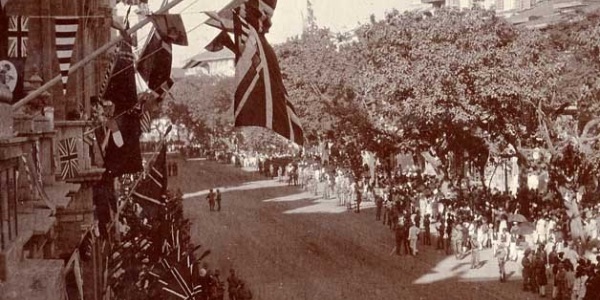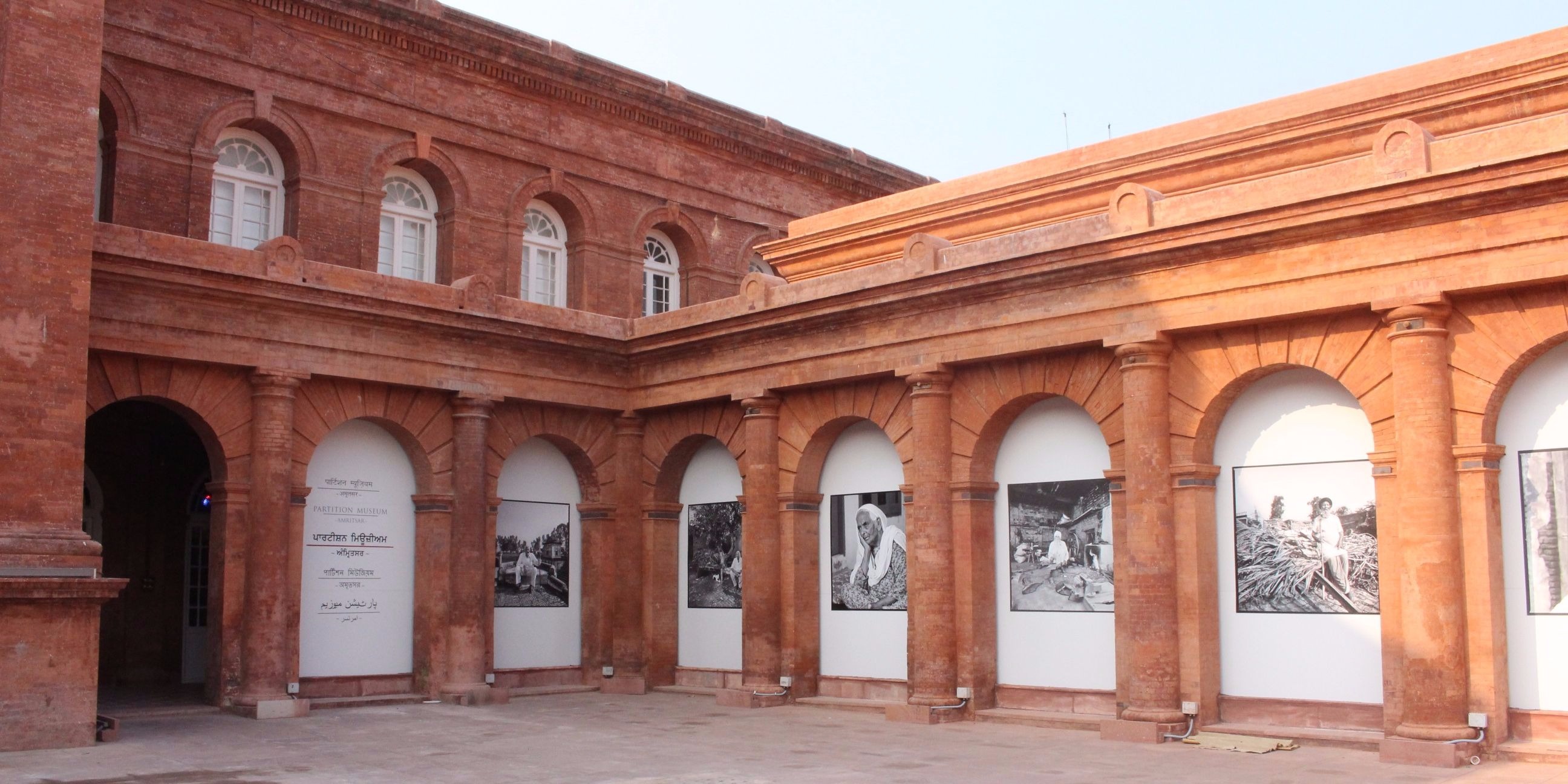
When states and governments are called upon to apologise for historic wrongs including episodes of colonial violence, a series of philosophical questions spring up. Suyash Saxena considers some of these questions and their implications.
Recently the London mayor, Sadiq Khan, had appealed to the British government to tender an official apology for the Jallianwala Bagh massacre. More than a thousand people were butchered on the command of Brigadier General Dyer to open machine gun fire on unarmed Baishakhi pilgrims trapped in the walled space of Jallianwala Bagh on the fateful day of April 13, 1919. The British foreign office has turned down Sadiq Khan’s appeal reiterating the stance taken the by former British Prime Minister, Mr. David Cameron, who had described the incidence a “deeply shameful” when he visited the site of the massacre in 2013, but eschewed an official apology.
On a similar note, a few months ago, Indian MP Shashi Tharoor had caused a flutter when, in an Oxford Speech, he suggested that the British government owes India an apology for its colonisation. Later the demand was reiterated in his book, An Era of Darkness.
The issue of nations tendering apologies for historic wrongs is largely determined by political calculations. Whether it is the Canadian Prime Minister, Justin Trudeau apologising for the exclusionary laws of Canada that led to the Komagata Maru incident in 1914 or the demand for the British Prime Minister to apologise for the Trans-Atlantic slave trade prevailing from the 16th to 19th century, there is always a political arithmetic underneath.
However, deeper than political considerations are philosophical underpinnings. When States and governments are called upon to apologise for historic wrongs like the colonial excesses or the slave trade, then a series of philosophical questions spring up. On what grounds can moral culpability of nations and states be fixed? Is there any universal and eternal ethical code, static through ages, against which we judge the moral worth of actions and fix moral responsibility even centuries later? What obligates the contemporary governments and nations to apologise for acts of moral turpitude that happened in history?
This plethora of philosophical questions get effectively condensed in the question that Harvard philosopher, Michael Sandel asks in his famous book Justice: What’s the Right Thing to do? ,‘Should we atone for the sins of our ancestors?’ (2009: 211-215).
Sandel, while surveying the history of modern ethical philosophy argues that the defining endeavour of the post-Enlightenment philosophy has been to establish that the individual is a free moral agent i.e. the individual commands absolute freedom to act per his choice and therefore the moral responsibility for his actions falls squarely and solely upon the individual. Philosophers from Locke to Kant and then Rawls have adhered in some way or the other to this modernist tenet of ‘moral individualism’.
The implication of this philosophy of moral individualism is that there is little scope for collective responsibility. If moral responsibility falls solely on the individual, then only individuals and not nations as collective-wholes, are responsible for their actions and individuals must apologise for their sins, not the sins of their ancestors. This denial of collective morality is what Sandel criticises.
He argues that a collective moral continuity through the history of a nation is essential to the idea of nationhood, collective identity and a shared culture. He flips the moral individualist’s argument and says that we take pride in the historical achievements of our nation and that pride is an essential element of our national identity or the idea of common nationhood. By the same token, must we also not own moral shame and culpability for the historic wrongs committed by our nation.
If contemporary Britain, for instance, takes pride in the global dominance it enjoyed in the imperial era and accomplishments of some of its illustrious monarchs, must it also not own the moral desert of colonial atrocities that fuelled those imperial achievements? Both these elements of collective pride and collective shame provide the moorings for collective identity to the British based on a sense of shared cultural continuity. Not owning up to the historic sins erodes those moorings of collective identity, argues Sandel.

British flags fly in India in the era of the Raj. Image source: Public domain.
Sandel has thus, presented an interesting philosophical justification for nations to apologise for historic wrongs. However, one is tempted to point out that collective identity or the idea of shared nationhood is not simply based on shared moral responsibility for the historic past but also on collectively ‘forgetting’ certain historic unsavoury events, resurrecting which would breed acrimony. There is no nation in the world that does not have its share of historical acrimony and if nations survive, it is, inter-alia, due to selective elisions of historic events that would bring out the skeletons from the closet of history and breed divisions in the present.
Scotland and England, for example, have fought many wars in Medieval times. Can the United Kingdom survive today if the two keep resurrecting the past and demand apologies for what each side considers to be historic wrongs? The divisive rhetoric witnessed during the Scottish Independence vote, 2014 or even during the ‘leave campaign’ in Brexit, was premised on continual invocation of the acrimonious past. Thus, moral continuity through history is not necessarily the unifying element of collective identity or national culture. Selective omissions of unsavoury events of the past is equally essential.
Moreover, the demands like that of Shashi Tharoor for governments to apologise for what they today consider historic ‘wrongs’ is premised on a linear view of history: Britain colonised India which is morally ‘wrong’ and the moral responsibility linearly flows down to the present generation of Britons who are therefore obligated to apologise for their ancestors’ sins. History is not linear. It is not simple either. It is a complex fabric of several inter-woven strands. The British and the Indians criss-crossed each other in the colonial context and it gave rise to an inter-knitted fabric of colonial Indian history. This is the nature of history of any country in any period. Every thesis meets its anti-thesis to give rise to a new synthesis and this synthesis cannot be meaningfully scissored between ‘good’ or ‘bad’, ‘moral’ or ‘immoral’ to demand apologies.
Even if such fragmentation of history was possible, it would always be subjective as moral judgements always are. There are no barometers to measure morality and certainly the moral worth of historic events cannot be meaningfully gauged by moral yardsticks of the present. Historian John Keay has insightfully observed, “The conduct of states, as of individuals, can only be assessed by the standards of their age, not by today’s litigious criteria. Otherwise, we will all be down on the government of Italy for feeding Christians to lions”.
Issues like Sadiq Khan demanding a formal apology from the British government for the Jallianwala Bagh incident will always be settled by the politics of the day. Nevertheless, such issues of nations apologising for historic wrongs involve a deeper ‘philosophy of apology’ which may be of an academic interest if not of policy interest.
Cover image: The lane at Jallianwala Bagh. Image credit: Sychonet, CC0 1.0 .
This article gives the views of the author, and not the position of the South Asia @ LSE blog, nor of the London School of Economics. Please read our comments policy before posting.
About the Author

Suyash Saxena is a New Delhi based writer who frequently writes on political culture and both Indian and global current affairs. He has been published in several Indian and international periodicals. He completed his Masters in Philosophy at Jawaharlal Nehru University, New Delhi. He tweets @suyash_33





